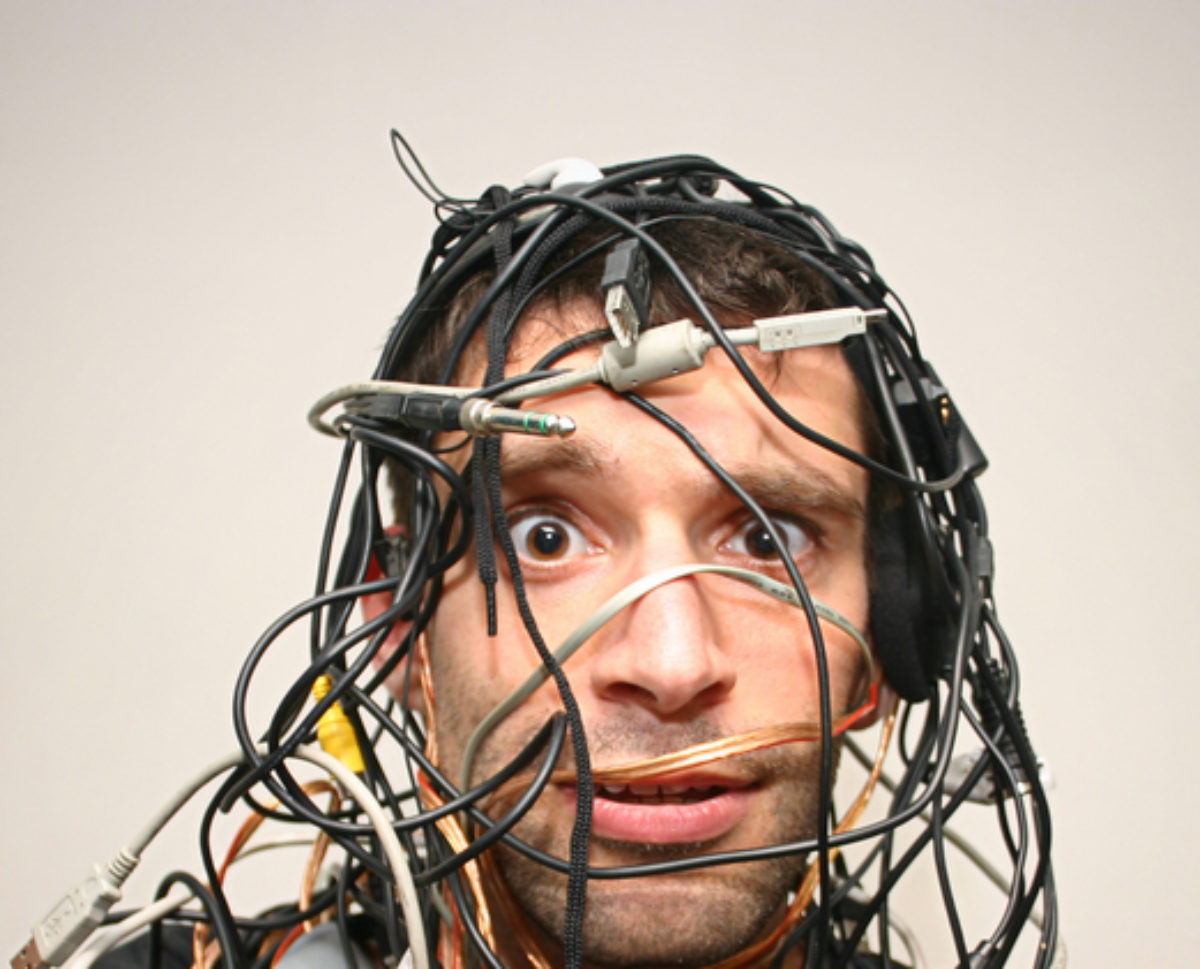A recent internet meme is an audio recording of someone saying – well, what he’s saying is kind of the issue. Some listeners hear “Laurel”, and others hear “Yanny.” It’s been pointed out (in the Times “Upshot”and elsewhere) that this is the result of a somewhat muddied recording. When a sound is ambiguous, your brain will still try to make some sense of it, and what you decide the sound was will just depend on … many things. In a related case three years ago, an image of a dress was seen by some as being blue and black, and by others as gold and white. This too went viral.
Both of these are examples of what’s called “categorical perception”, in which minor shifts along some axis result in sharp changes in what you see or hear. This was illustrated nicely by the Times article, which provided a slider to modify the Laurel/Yanny recording, so that most listeners can hear the sudden change in what was apparently said.
Our brains hate ambiguity; or, more accurately, we identify patterns in what we see or hear, whether or not they are there, and whether or not we identify the right pattern. Some of this is due to sensory bias, but often it is due to cognitive bias – what is our implicit or unconscious leaning in any given situation?
When we see (or hear) an explicit example of this, it is often just entertaining (or possibly mind-bending). But categorical perception affects us daily in ways that can be useful. It is important to be able to make decisions, and having our perception seemingly giving us direct evidence of one thing or another is probably important to our survival as a species (at least it’s mostly worked so far).
But in our politics … we’ve arrived at a point where significant chunks of the population think that people in another chunk are fundamentally awful. Coastal liberals may think of Trump voters as either morons or racists (or both); hinterland Trump voters may think of liberals as elitists who are unconcerned with the issues affecting “real” Americans.
[Side note: I don’t mean to imply that there is an equivalence between these two sides – I am indeed a coastal liberal, and my clear bias is that on policy matters, Republican voters are simply wrong. But here I’m talking about the “other-ization” of people from anyone in a particular group, which is pretty common for everyone.]
Are there real differences between the groups like the “urban liberals” and the “rural conservatives”, for instance? You bet! We often have different daily concerns. We have different backgrounds. We have, overall, quite different beliefs about many things, not the least of which is our view of the current President.
And yet …
In Sarah Silverman’s “I Love You America”series on Hulu, she makes a point of meeting with Trump voters and bonding with them. She is not shy about her views (or seemingly about anything else), but she connects quite warmly with all kinds of people. She also explores how some people ultimately moved from extremism to acceptance of others. In one of her shows, she interviewed Megan Phelps-Roper, who left the Westboro Baptist Church (the one that pickets veteran’s funerals, says many horrible things about gays, etc.). Ms. Phelps-Roper was able to radically change her views after many encounters with people on the other side (she even ended up marrying one of her online critics!) Previously she had been very sheltered, only encountering others in the same group. Change was possible!
We each see the world in our own particular way, conditioned by our previous world experience; and the resulting world view can be very hard to change. But repeated exposure to something different can have an effect, and it often is a sudden (or categorical) shift. This is how the brain works – it tries to make sense of its input, and it can take significant new input for that sense to change.
How does this work in the world of politics? I think that the works of cognitive linguist George Lakoff offer some clues. Lakoff describes two conflicting underlying world views: that of the “strict father” and the “nurturant parent”. I won’t attempt to summarize his extensive work in a few lines (his “Don’t Think of an Elephant” book as well as his current podcastsare where you should go to begin to understand it), but for the purpose of this note, let’s just say that many people have both the “pull yourself up by your own bootstraps” and the “let’s help people who need it” sentiments about different things. And this suggests that conversation is possible between the two “tribes”, however difficult it might seem.
For progressives, what does all of this say about talking to our fellow citizens who like Trump? I think the main point here is that nearly all of our population doesn’t deserve the “monster” category, but many people with very “strict father” views for some topics have pretty open views for others; and while we should not be shy about saying what we think about any topic, we should not denigrate those with opposing views personally; and in seeking common ground on other issues, we can make our policy opponents aware that we too are not monsters, and progress actually can be made.
